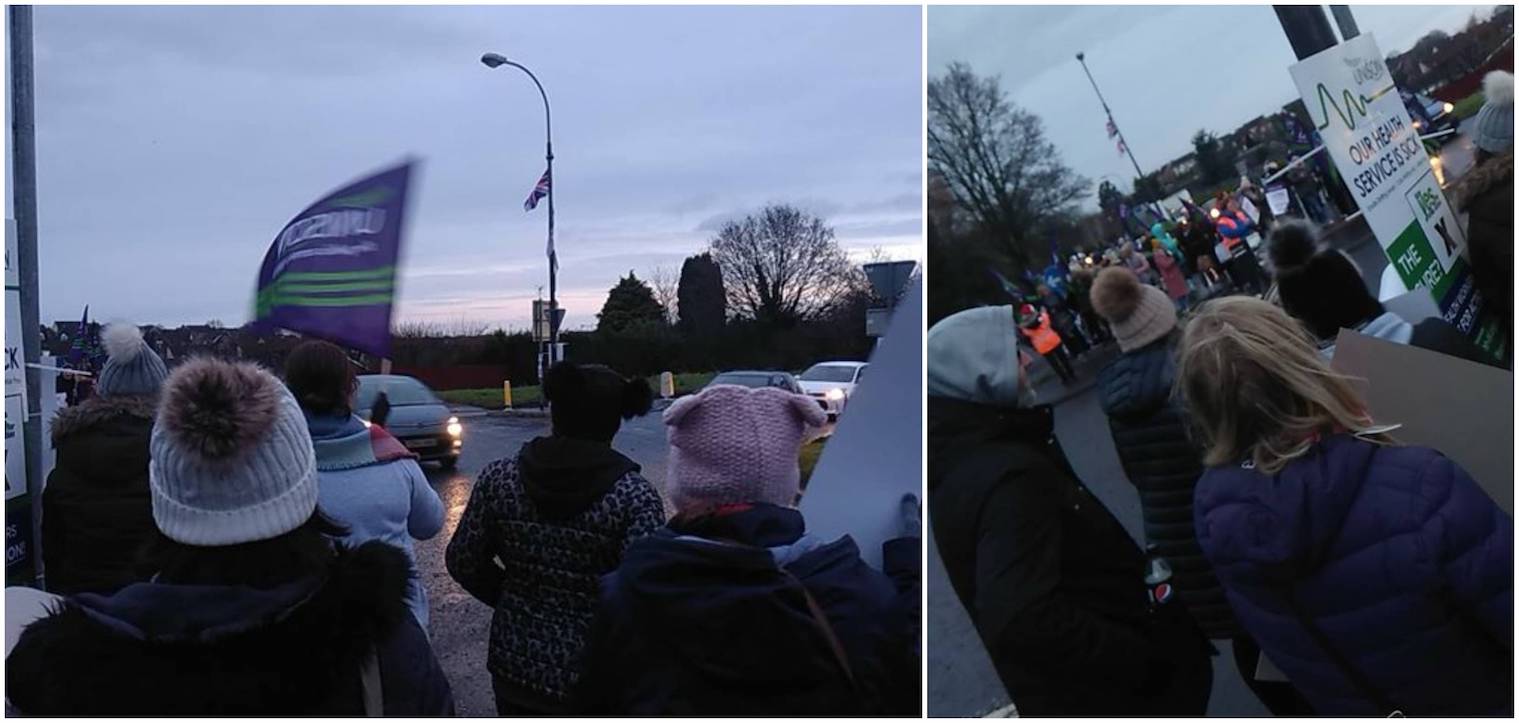
Two further planned strikes by health care staff this week will have “much more serious consequences” than a day of action staged the week before Christmas.
And health chiefs have said they do not see how the industrial action – planned by staff for Wednesday and Friday – will “advance their cause”.
Southern Trust chief executive Shane Devlin and Michael Bloomfield, his Northern Ireland Ambulance Service Trust counterpart, have released joint statement ahead of this week’s stoppages.
They have called on those involved to consider postponing their action.
And in doing so they have quoted waiting times and statistics at local emergency departments as the New Year got off to a busy start.
They said the industrial action before Christmas was “very effective in highlighting reasonable concerns around fair pay and the impact of long-term staff shortages on the delivery of care”.
But they added: “We recognise that staff have not taken industrial action lightly and have worked closely with Trusts to ensure that the most essential services have been maintained.
“However, given the current circumstances, it is difficult to see how further strike action this week can advance their cause.
“There are very strong grounds for believing that the planned strikes on the 8 and 10 January will have much more serious consequences than 18 December.
“Our health and care service is already under considerable strain with severe winter pressures over the Christmas and New Year period.
“These pressures continue to build and are particularly intense today.
“To put that in perspective, at 2pm on Friday 3 January there were 136 patients waiting over 12 hours in emergency departments to be either admitted to a hospital bed or discharged – and 401 over the previous 24 hour period.
“As of 10:15am today, 7 January there were 217 patients in the emergency departments of Northern Ireland’s acute hospitals waiting over 12 hours and 456 over the last 24 hour period.
“With two strike days planned in the space of 72 hours this week, there are serious concerns that the system could be pushed beyond the tipping point.
“This could mean that patient safety will be compromised as never before.
“Whilst we continue to support our staff and are respectful of their right to take action, we would urge a postponement.
“Given the pressurised context, we believe this would be a responsible action as we know their members care deeply about patient and client safety.
“We are all agreed that political leadership, budgetary certainty and investment are the vital components to resolving our many problems.
“None of us in the health and care service can provide these components. While we wait for those who can, our absolute focus must be on looking after patients and clients.”




